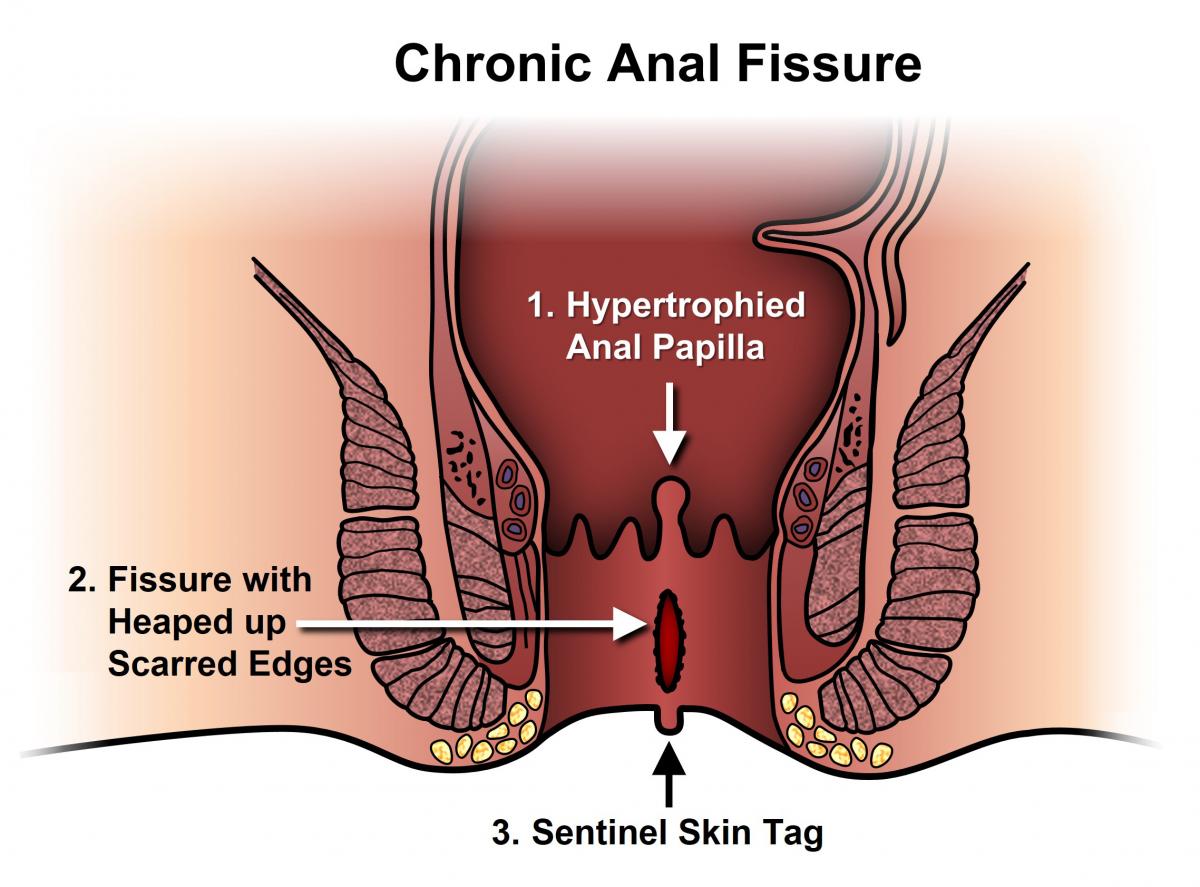Overview
 An
anal fissure is a small tear in the thin, moist tissue
(mucosa) that lines the anus. An anal fissure may occur
when you pass hard or large stools during a bowel movement.
Anal fissures typically cause pain and bleeding with bowel
movements. You also may experience spasms in the ring
of muscle at the end of your anus (anal sphincter).
An
anal fissure is a small tear in the thin, moist tissue
(mucosa) that lines the anus. An anal fissure may occur
when you pass hard or large stools during a bowel movement.
Anal fissures typically cause pain and bleeding with bowel
movements. You also may experience spasms in the ring
of muscle at the end of your anus (anal sphincter).
Anal fissures are very common in young infants but can affect people of any age. Most anal fissures get better with simple treatments, such as increased fiber intake or sitz baths. Some people with anal fissures may need medication or, occasionally, surgery.
Symptoms
Signs and symptoms of an anal fissure include:
Pain, sometimes severe, during bowel movements
Pain after bowel movements that can last up to several hours
Bright red blood on the stool or toilet paper after a bowel movement
A visible crack in the skin around the anus
A small lump or skin tag on the skin near the anal fissure